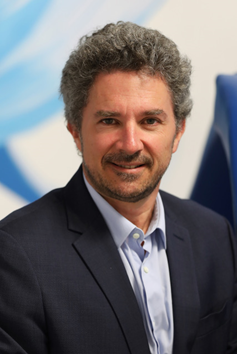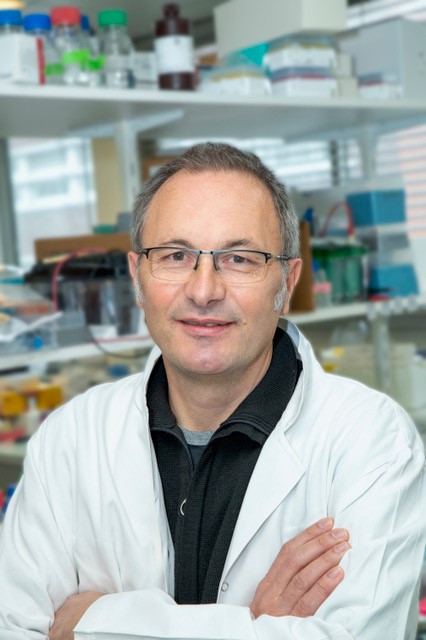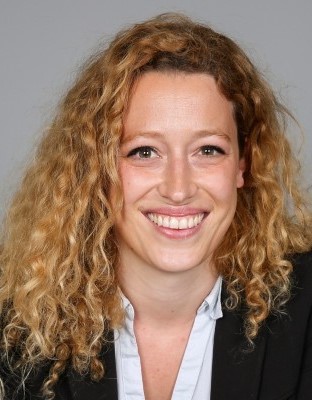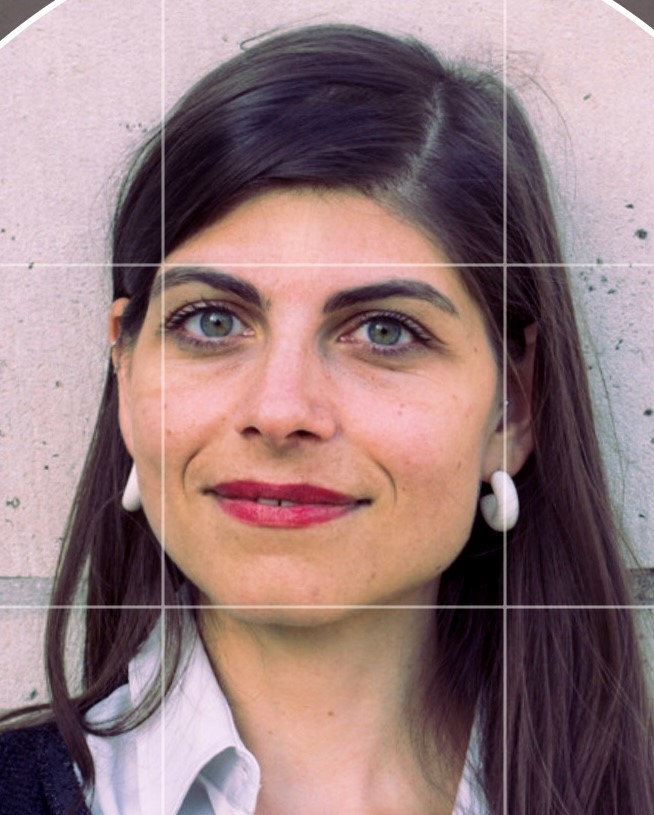Direction

AP-HP Trousseau
Orthopaedic surgeon and WP1 leader (antenatal and paediatric care)
Professor Raphaël Vialle is Professor of Child Surgery (PUPH) at Sorbonne University. He is head of the department of orthopaedic and reconstructive surgery for children at Hôpital Armand Trousseau – APHP – Paris, France. He specialises in the treatment of spinal deformities in children and adolescents.
After graduating as a doctor of medicine from the University of Paris – Versailles – Saint-Quentin-en-Yvelines. He continued his training in orthopaedic and child surgery at Hôpital Beaujon, Fondation Hôpital Saint-Joseph, Hôpital du Kremlin-Bicêtre, Institut Calot (Berck-Plage), Hôpital Necker Enfants-Malades and Hôpital Armand Trousseau. He completed his university education with a thesis in neuroscience at the University of Paris XI. A member of numerous national and international societies (ISSLS, SSE, GES, SFCR, SOFOP, SOFCOT), he has published over 200 scientific articles in international journals and is author of over 40 book chapters. He is regularly invited both in France and abroad to share his experience with the most prestigious teams in the field of spine surgery. As part of the France-China Foundation’s Young Leaders programme, since 2018 he has been involved in Franco-Chinese exchanges on health and scientific research, and since 2025 he has been Vice-Dean for International and European Affairs, given his involvement in numerous initiatives between France, China, India and Japan in the field of health.
Professor Raphaël Vialle is co-founder and co-director of the Mamuth University Hospital Department for Musculoskeletal Diseases and Therapeutic Innovations (DHU Mamuth) with Professor Thomas Voit from 2013 to 2018, and of the Mamuth University Hospital Federation (FHU Mamuth) with Professor Bertrand Fontaine from 2020 to 2024, then again Director of the FHU MAMUTH with Professor Denis Furling from 2025.

AP-HP La Pitié – Salpêtrière
Director of the Myology Research Center/UMR-S 974 and WP3 leader (fundamental research)
Denis FURLING (CNRS Research Director) is Director of the UMR-S 974 Unit and the Myology Research Center (Sorbonne Université/Inserm), located at the Pitié-Salpêtrière Hospital. He also co-directs a research team, and his work focuses mainly on myotonic dystrophy type 1 (DM1 or Steinert’s disease), one of the most common neuromuscular diseases in adults, caused by an expansion of CTG repeat sequences. He is one of the world’s leading experts on this disease.
After completing a Master’s degree at the University of Strasbourg, he moved to Canada, where he undertook a thesis in cellular and molecular biology, obtaining his doctorate in 1997 from Laval University in Quebec City. He then completed post-doctoral studies, first in Quebec in the Human Genetics unit, then in Paris, where he joined Gillian Butler Browne’s Cytoskeleton & Development team. In 2004, he joined the CNRS as Chargé de Recherche, continuing to work on muscle diseases. In 2010, he became Director of Research at the CNRS, obtained his HDR at Sorbonne University and set up a research team on myotonic dystrophy. In 2020, Denis FURLING was appointed Deputy Director of the Research Center under the joint supervision of Sorbonne University and Inserm, and since 2024, he has been Director of this research structure.
Member of various national and international committees, and reviewer for numerous international scientific journals. Denis FURLING has published over a hundred articles or books in international journals and is co-inventor of several patents. He is regularly invited to France and abroad to share his expertise in pathophysiology and therapeutic approaches to myotonic dystrophy.
Listen to Dr Denis FURLING on Myotonic Dystrophy type 1 (Youtube video)
Steering committee members

AP-HP La Pitié – Salpêtrière
Adult neurologist and WP2 leader (adult care)
Access AP-HP’s page
Dr Tanya Stojkovic is a neurologist and neuromuscular disease specialist at La Pitié Salpêtrière Hospital. She is also head of the neuromuscular disease reference centre and has been president of the French Peripheral Nerve Society (SFNP) since February 2021.

AP-HP la Pitié – Salpêtrière
Adult orthopaedic surgeon and leader of WP2 (adult care)
Dr Laura Marie-HARDY is an orthopaedic surgeon-researcher – MCU-PH, specialising in the management of spinal pathologies at the Pitié Salpêtrière Hospital. In addition to her clinical activities, she conducts research into the genetics of idiopathic scoliosis at the Institut du Cerveau et de la moelle épinière (ICM), and is also active in the same institute in C. Wyart’s team on the problems of CSF flow and locomotion.

I-MOTION Trousseau et la Pitié – Salpêtrière
Pédiatre et co-leader WP4 (essais cliniques)
Dr Marina COLELLA is a paediatrician at Trousseau. She is also deputy director of the two clinical trial platforms, I-Motion paediatrics at Trousseau and I-Motion adults at Pitié Salpêtrière.

AP-HP Trousseau
Obstetrician gynaecologist and WP5leader (training and education).
Professor Jean-Marie Jouannic is head of the foetal medicine department at Trousseau Hospital. He is an obstetrician-gynaecologist specialising in prenatal diagnosis and foetal medicine (treatment following the discovery or suspicion of a foetal anomaly following a pregnancy ultrasound scan). He is the head of the “Spin@” Reference Centre dedicated to vertebral and spinal cord anomalies.
Chirurgie fœtale : comment ça fonctionne ? (FR only, article on La maison des maternelles website)

Manager of the FHU MAMUTH
Senior Research Engineer
Nezha LENZI is a Doctor in Science from the University of Aix-Marseille II. She then joined the APHP, where she developed expertise in the coordination of clinical research networks and the management of their financial portfolios, including the set-up and management of academic and industrial projects at national and European level. She is co-author of more than 22 publications.
Opérational organisation
The operational organisation of the FHU MAMUTH is based on 6 Work Packages.
The first WP concerns the organisation and management of the consortium, then the other WPs are organised around the scientific programme with a specific WP1 for prenatal and paediatric care and a specific WP2 for adult care. These 2 WPs communicate with each other with the aim of setting up a continuum of care and also communicate transversally with the other WPs, that of fundamental research (WP3), clinical trials (WP4) and training and education (WP5). The aim of the latter WP is to set up innovative research projects and training programmes in musculoskeletal diseases.